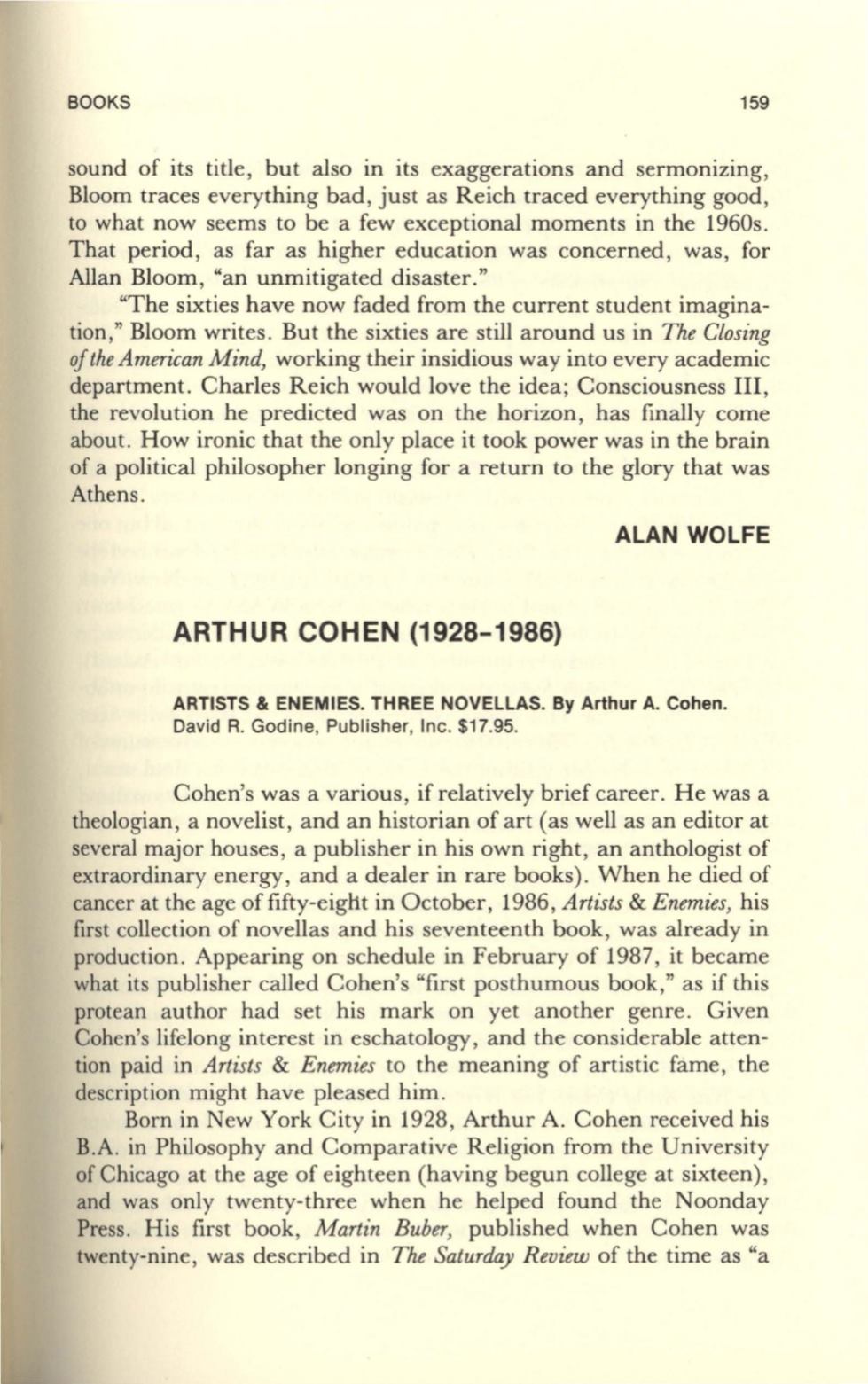
BOOKS
159
sound of its title, but also in its exaggerations and sermonizing,
Bloom traces everything bad, just as Reich traced everything good ,
to what now seems to be a few exceptional moments in the 1960s.
That period, as far as higher education was concerned, was, for
Allan Bloom, "an unmitigated disaster."
"The sixties have now faded from the current student imagina–
tion," Bloom writes . But the sixties are still around us in
The Closing
ofthe American Mind,
working their insidious way into every academic
department. Charles Reich would love the idea; Consciousness
III,
the revolution he predicted was on the horizon, has finally come
about. How ironic that the only place it took power was in the brain
of a political philosopher longing for a return to the glory that was
Athens .
ALAN WOLFE
ARTHUR COHEN (1928-1986)
ARTISTS
&
ENEMIES. THREE NOVELLAS.
By
Arthur
A. Cohen.
David R. Godine, Publisher, Inc. $17.95.
Cohen's was a various, if relatively brief career. He was a
theologian, a novelist, and an historian of art (as well as an editor at
several major houses, a publisher in his own right, an anthologist of
extraordinary energy, and a dealer in rare books) . When he died of
cancer at the age of fifty-eight in October, 1986,
Artists
&
Enemies,
his
first collection of novellas and his seventeenth book, was already in
production. Appearing on schedule in February of 1987, it became
what its publisher called Cohen's "first posthumous book," as if this
protean author had set his mark on yet another genre. Given
Cohen's lifelong interest in eschatology, and the considerable atten–
tion paid in
Artists
&
Enemies
to the meaning of artistic fame, the
description might have pleased him .
Born in New York City in 1928, Arthur A. Cohen received his
B.A. in Philosophy and Comparative Religion from the University
of Chicago at the age of eighteen (having begun college at sixteen),
and was only twenty-three when he helped found the Noonday
Press. His first book,
Martin Buber,
published when Cohen was
twenty-nine, was described in
The Saturday Review
of the time as "a


